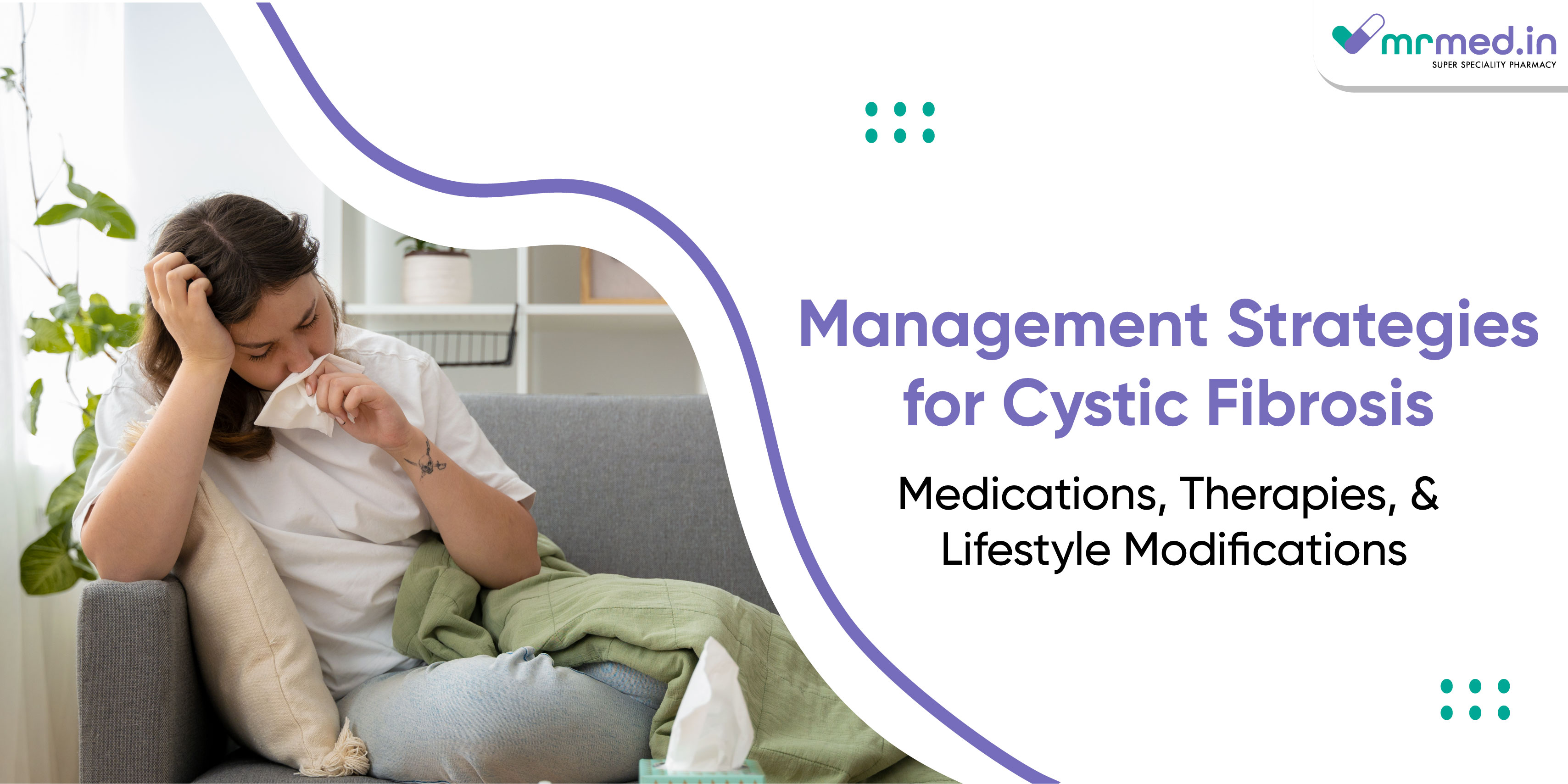
Cystic fibrosis (CF) is a hereditary or genetic disorder that causes immense damage to your lungs, liver, digestive system, and other organs in the body. The cells that make mucus, sweat, and digestive fluids are affected by cystic fibrosis. Usually, these fluids produced are flimsy and thin. However, a faulty gene makes secretions thick and sticky in CF patients. These secretions block the tubes, pathways, and ducts along the lungs and pancreas. These secretions lose their function as a lubricant.
Symptoms of Cystic fibrosis
- You may experience a smell or greasy stools
- You may have poor weight gain and growth
- Newborn babies may have an intestinal blockage
- You may experience chronic or severe constipation
- You may experience persistent cough along with thick mucus
- You may develop lung infections
Medication management
1. Cystic fibrosis transmembrane conductance regulator:
These are the newer class of medications approved by the FDA that are useful for people having genetic mutations and improve their condition. They undergo their action by enhancing lung function and decreasing the levels of salt in the sweat.
2. Bronchodilators:
These medications are used to widen and dilate the airways along the bronchi and bronchioles, making the patient breathe easier. This action causes increased airflow into the lungs that gets rid of the excessive mucus.
3. Mucolytics:
These medications help to reduce the thickness of the mucus. This action makes it easier for the flow and coughs up the blocking mucus.
4. Antibiotics:
As cystic fibrosis causes increased mucus production and thickening around the lungs, this condition can lead to the development of bacterial infections around the area. This is most commonly seen in these types of fibrosis patients. To counter the infections, various antibiotics are used depending on the species of bacteria.
5. Ursodeoxycholic Acid (UDCA):
Ursodeoxycholic acid (UDCA) is used in the treatment of cystic fibrosis. It is a hepatoprotective agent. It helps to delay the process of liver damage in the early stages. It also helps treat CF-related liver disorder by improving the flow of the bile duct, which is blocked by the thick and sticky mucus. For example, the Udiliv tablet contains the active ingredient ursodeoxycholic acid.
Therapies
Individuals with cystic fibrosis require airway clearance therapy. This can be accomplished with manual chest physical therapy or a device worn across the chest that facilitates coughing up mucus in the airways by shaking it. Another portable tool for removing mucus is a mask or mouthpiece for breathing. By making you exhale more forcefully, this gadget helps to release mucus that has become lodged in your airways.
Some of the available techniques include:
- Chest physiotherapy
- High-frequency chest wall oscillation
- Positive expiratory pressure therapy
- Autogenic drainage
- Active cycle of breathing techniques
In severe conditions, a few surgeries are also performed to help the patient manage the condition. A few of them include the following:
- Nasal and sinus surgery
- Bowel surgery
- Lung transplant
- Liver transplant
Lifestyle modifications
1. Consume a high-calorie, high-fat diet to support weight gain and nutrient absorption.
2. Keep yourself well-hydrated to thin mucus and prevent dehydration.
3. Always engage in regular physical activity to maintain lung function and overall well-being.
4. Always stay in good hygiene and follow the measures of using sanitizers to avoid contamination with infections.
5. Plan and visit your healthcare provider on a regular basis to monitor your condition and makeup treatment plans accordingly.
6. Incorporate airway clearance techniques into daily routines to help clear mucus from the lungs.
7. Take prescribed medications as directed to manage symptoms and prevent complications.
8. Avoid smoking and secondhand smoke, as it can worsen lung damage.
9. Always be in touch with your doctor and keep yourself updated on developments and treatment for your condition.
Conclusion
Cystic fibrosis is a genetic disorder that causes immense pain and affects the way your life can be lived. Although there is no effective cure, medication, and therapy management give the patient hope to fight it. Effective management strategies and certain lifestyle modifications can help people with cystic fibrosis.























